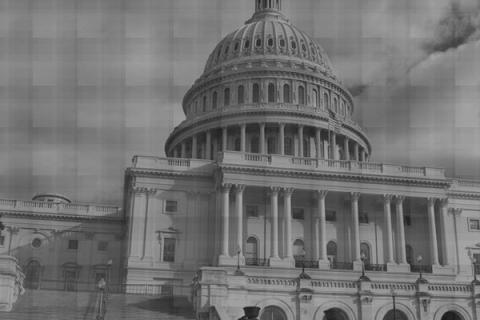Unelected partisans came face-to-face with a genuine independent voice this week in the form of American icon, Warren Buffett. In Monday’s New York Times, Buffett – CEO of Berkshire Hathaway Investments – asked the nation that allowed him to become one of the richest men in the world to relieve him of some of his money. Why? Because his country, and its poor and middle class citizens, need it.
“While the poor and middle class fight for us in Afghanistan, and while most Americans struggle to make ends meet, we mega-rich continue to get our extraordinary tax breaks,” Buffett wrote in his Times op-ed titled “Stop Coddling the Super-Rich."
Compare Buffett’s independent thinking with that of the highly partisan Grover Norquist, president of Americans for Tax Reform, who has arm-twisted nearly every Republican into signing a “no new taxes” pledge; or George Soros, the billionaire investor who supports only Democratic causes. Buffett does not declare himself to be a Democrat in his article, or an apostate Republican. He just says taxes are too low given the nation’s condition.
The “Oracle of Omaha” also shoots holes in the theory that tax increases automatically reduce incentives to invest that money:
“I have worked with investors for 60 years and I have yet to see anyone — not even when capital gains rates were 39.9 percent in 1976-77 — shy away from a sensible investment because of the tax rate on the potential gain. People invest to make money, and potential taxes have never scared them off.”
Buffett proves he’s the kind of independent that America needs right now when he looks square into the dozen faces of the newly minted Congressional committee that must devise a plan to put the nation’s fiscal house in order:
“Job one for the 12 is to pare down some future promises that even a rich America can’t fulfill. Big money must be saved here. The 12 should then turn to the issue of revenues. I would leave rates for 99.7 percent of taxpayers unchanged and continue the current 2-percentage-point reduction in the employee contribution to the payroll tax…. But for those making more than $1 million — there were 236,883 such households in 2009 — I would raise rates immediately on taxable income in excess of $1 million, including, of course, dividends and capital gains. And for those who make $10 million or more — there were 8,274 in 2009 — I would suggest an additional increase in rate.”
That’s truly putting your money where your mouth is. Grover Norquist isn’t wealthy enough to make such a claim. Neither are most of the other unelected “thought leaders” on the current American landscape. Soros has agreed with the Buffett statement, but he didn't volunteer one of his own. Meanwhile, the other unelected powerhouses – the big money lobbyists from banking, oil, pharmaceuticals, agriculture, firearms and other industries and special interest groups, are perfectly happy to take their big tax breaks offshore and line their pockets whatever the cost to the American middle class.
Not everyone is impressed with the sincerity of Buffett’s self-sacrifice, though. Former Nixon speechwriter and presidential candidate Pat Buchanan told MSNBC’s Morning Joe this week:
“I’m a little fed up with these people who come on, you know, their big op-eds, all these admonitions. Why doesn’t he set an example and send a check for $5 billion to the federal government?”
It's certainly possible for Buffett to do so, although it appears from other interviews that his primary purpose is to prod Congress into taking assertive action to solve its own problem, not to solve it for them.
Other politicians, including Republican presidential hopeful Rick Perry of Texas, blame the loose money policies of Fed Chairman Ben Bernanke rather than the need for more tax revenues for the woes of the nation's middle class. In fact, Perry has said that if Bernanke calls for the printing of any more money that his actions will be almost "treasonous" (a Constitutionally inaccurate interpretation of the term). Perry is not the first to criticize the Federal Reserve, although he may be the most outrageous in his accusations. Ron Paul has long argued that a central bank is an extraconstitutional structure that especially hurts the poor and middle class, but such arguments have raged since the establishment of a central bank in 1913, and are far too complex to delve into in this article. Buffett has largely praised Fed Chairman Ben Bernanke, though he has voiced concern over inflationary pressures.
Additionally, progressives (and some of the more libertarian-minded) have argued for years that military spending is one of the major causes of record deficits, particularly the Iraq and AfPak Wars, which were started under the Bush Administration and continued under President Obama. More recently, President Obama has signed off on bigger military budgets than George W. Bush. Buffett took no position on these expenditures or the need to bring troops home in his New York Times op-ed, though he did call on the Committee of 12 to address all cost-related issues.
All presidential candidates may claim ties to the Founders, but only a few have re-lit the flame of independence. Buffett, Ron Paul, Bernie Sanders of Vermont and, to a lesser degree, Olympia Snowe of Maine are among the few remaining independent thinkers on the Hill. Most of the others have fallen into the partisan parade like a line of lemmings. It’s up to us to to demand critical thinking and greater independence from the men and women we elect as our representatives. Tell them with your words and your votes that it is time to step away from blind partisanship.

